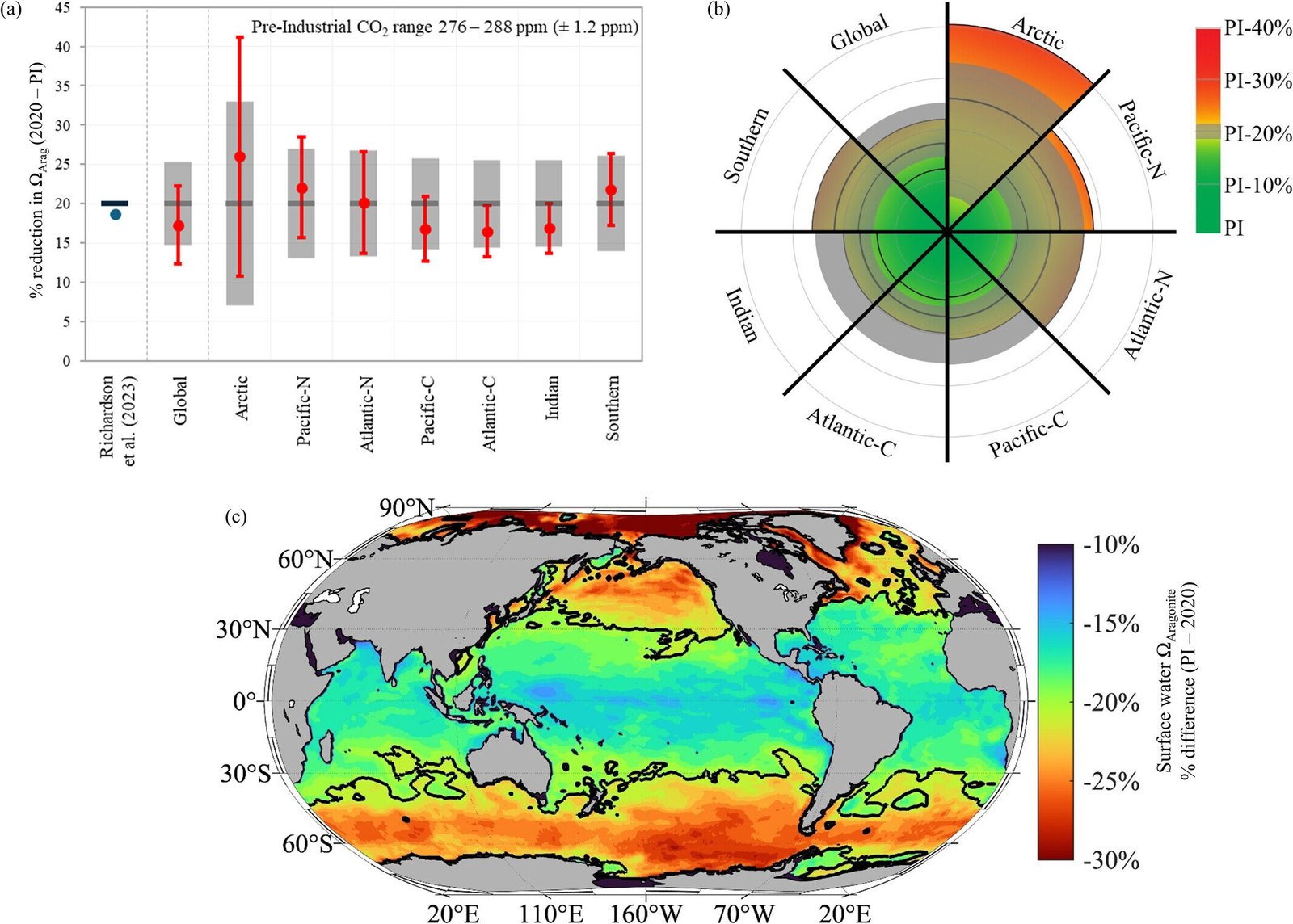
A team of planetary scientists, ecologists, and marine biologists affiliated with several institutions in the U.S. and one in the U.K., has found evidence suggesting that parts of the world’s oceans have already passed what has come to be known as a planetary boundary.
For their paper published in the journal Global Change Biology, the group gathered and used new and historical physical and chemical measurements gained from ice cores, along with computer models and prior studies of marine life, to come up with an assessment of the impact of increased levels of carbon dioxide on the world’s oceans.
Over the past several decades, scientists have been learning more about the impact of increased amounts of CO2 in the atmosphere and its impact on the world’s oceans. They have learned, for example, that more carbon dioxide is absorbed by ocean water compared to the time before the Industrial Revolution.
The carbon dioxide reacts with water molecules, resulting in the formation of carbonic acid and a subsequent reduction in carbonate ions available for use by sea creatures in making their shells. That leads to damaged coral reefs and degradation of the habitats around them, making life difficult for the fish and other creatures that live there.
Other scientists have been developing theories regarding the amount of harm the planet can sustain due to global warming, pollution, habitat destruction and other human activities, before the onset of destructive consequences occurs—such as new weather systems developing that cause widespread destruction. They came up with nine planetary boundaries, six of which are thought to have been reached already.
In this new study, the research team suggests a seventh is currently in the process of being crossed. That boundary, they suggest, is ocean acidification, and it happens when the amount of calcium carbonate in seawater hits a 20% reduction relative to levels present before the Industrial Revolution.
By using a wide variety of resources and findings from prior studies, the researchers discovered that the planetary boundary for ocean acidification has been crossed by approximately 40% of the world’s ocean surface water, and 60% of subsurface water. Such crossings, they also found, began at least five years ago.
The researchers also note that a planetary boundary does not represent a tipping point—it is still possible, they claim, to reverse what has been done by ceasing the emission of greenhouse gases into the atmosphere.
More information:
Helen S. Findlay et al, Ocean Acidification: Another Planetary Boundary Crossed, Global Change Biology (2025). DOI: 10.1111/gcb.70238
© 2025 Science X Network
Citation:
Ocean acidification may have crossed ‘planetary boundary’ five years ago (2025, June 13)
retrieved 13 June 2025
from https://phys.org/news/2025-06-ocean-acidification-planetary-boundary-years.html
This document is subject to copyright. Apart from any fair dealing for the purpose of private study or research, no
part may be reproduced without the written permission. The content is provided for information purposes only.




